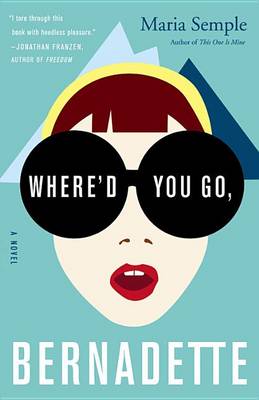Reviewed by brokentune on
After a summer of little reading joy, October certainly seems to make up for it with some cracking reads. I'm not usually keen to pick bestsellers because they don't often live up to expectations, but this one worked for me.
Where's You Go, Bernadette? is the story of a family of endearing characters, all of whom seems to be persecuted for their individual eccentricities by various people from the confines of the particular Seattle community they live in. However, not all is well. There are strains and stresses that take their toll and lead up to events which cause each of the characters to examine their lives and their relationship with their surroundings. At the heart of the story is the bond between Bernadette and her daughter, Bee:
"I hit the pause button.‘How do you even know this?’ I demanded.
‘Abbey Road?’ Mom shrugged. ‘I don’t know, you just know it.’
She unpaused the CD. When ‘Here Comes the Sun’ started, what happened? No, the sun didn’t come out, but Mom opened up like the sun breaking through the clouds.
You know how in the first few notes of that song, there’s something about George’s guitar that’s just so hopeful? It was like when Mom sang, she was full of hope, too. She even got the irregular clapping right during the guitar solo.
When the song was over, she paused it.
‘Oh, Bee,’ she said. ‘This song reminds me of you.’
She had tears in her eyes.
‘Mom!’
This is why I didn’t want her to come to the first- grade elephant dance. Because the most random things get her way too full of love.
‘I need you to know how hard it is for me sometimes.’ Mom had her hand on mine.
‘What’s hard?’
‘The banality of life,’ she said."
As mentioned, the writing is chaotic - the story is told from different POVs and through different snippets of media: email, reports, interviews as well as straight narrative. It is littered with cultural cynicism, witty comedy, slapstick, and thinly veiled contempt for the exaltation of the mundane.
And why not? When boredom and depression are issues to be faced, I, too, like to challenge the routine:
"My heart started racing, not the bad kind of heart racing, like, I’m going to die. But the good kind of heart racing, like, Hello, can I help you with something? If not, please step aside because I’m about to kick the shit out of life."
Reading updates
- Started reading
- 10 October, 2014: Finished reading
- 10 October, 2014: Reviewed
